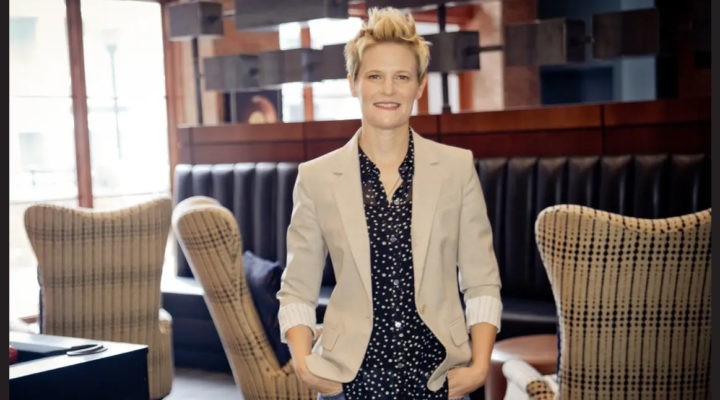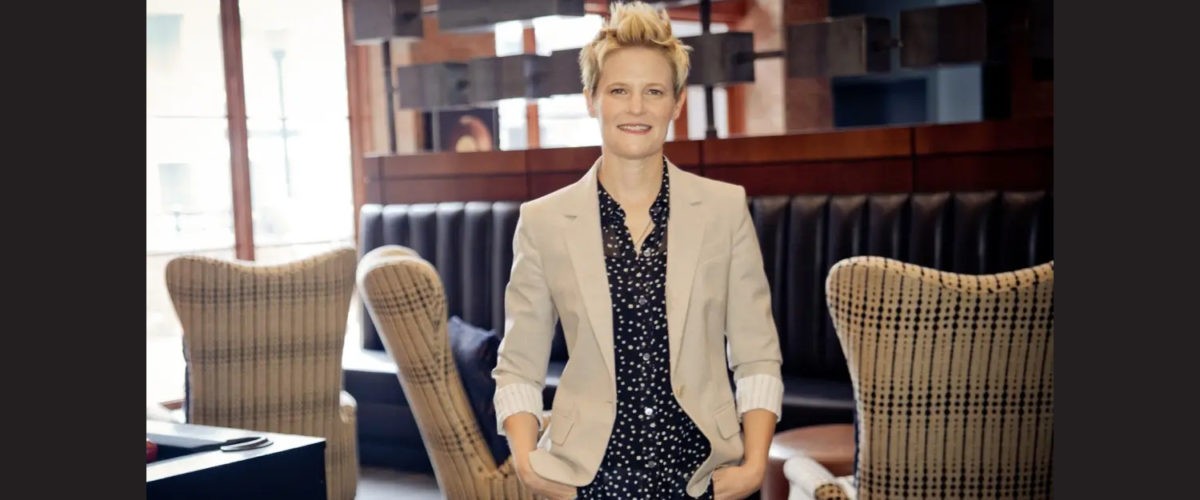Kelly Easter was raised in a Southern Baptist home where she learned of the Christian call to serve “the least of these.” Yet her current attempt to do just that by fostering an unaccompanied refugee child has been turned down by a Christian ministry solely because she is a lesbian.
The result: Easter, with help from Americans United for Separation of Church and State and Lambda Legal, has filed a federal lawsuit against the U.S. Department of Health and Human Services for discrimination against LGBTQ foster parent applicants by organizations that receive taxpayer funds to care for unaccompanied refugee children.
After hearing of the plight of refugee children and the shortage of Americans willing to take these children into their homes for temporary care, Easter, a 47-year-old Realtor in Nashville, determined she could help. She contacted the U.S. Office of Refugee Resettlement and was directed to the only entity participating in the program in her area: Bethany Christian Services, an approved partner of the United States Conference of Catholic Bishops, which receives federal funds to provide foster care services.
Bethany — which in the past had refused to work with LGBTQ parents but announced on March 1, 2021, that it would begin providing services to LGBTQ parents — turned her down. That first refusal in 2020 was because of Bethany’s stance against gay and lesbian persons serving as foster or adoptive parents.
Bethany — which in the past had refused to work with LGBTQ parents but announced on March 1, 2021, that it would begin providing services to LGBTQ parents — turned her down.
After Bethany announced its change of policy this spring, she contacted Bethany again and again was denied — this time not because of Bethany’s own limitations but because of the limitations placed on it by the Conference of Catholic Bishops, through whom it gets federal money.
Realizing the limitations of the partnership with the Catholic bishops, Bethany already had determined to open a second office in Tennessee, which would administer the Unaccompanied Children Program through a contract with the Lutheran Immigration and Refugee Service, which places no restrictions on LGBTQ people.
The new office is a 30-minute drive from Easter’s home, she told Time magazine. The lawsuit explains that a foster child in her care would have to visit that office twice a day on weekdays, meaning two hours of daily driving that Easter’s work schedule could not accommodate.
Easter contends that by not being allowed to apply to the East Nashville office nearer her home, she has been excluded from participating in the program entirely.
“It hurt to be turned away — twice — solely because of my identity.”
“I am heartbroken,” she said. “It hurt to be turned away — twice — solely because of my identity. I’ve been a Christian since I was a little girl and my personal relationship with God is the most important thing to me. I also know that LGBTQ people can have thriving families and that they are as important and deserving as any other. How can the government tell me that my beliefs are wrong?”
A statement from Americans United said the federal government has known for years it has a problem with discrimination by its faith-based vendors in refugee and adoption work but has refused to stop it.
“For years, the federal government has known that USCCB discriminates and requires its sub-grantees to discriminate against LGBTQ foster parent applicants, reducing the number of available homes for children in need, and sending a damaging message to LGBTQ adults and children alike that there is something wrong with their families,” the statement said. “Yet HHS officials continue to enable and sanction this discrimination.”
While Easter, who lives alone, is heartbroken by her own rejection, “I’m more concerned about the children,” she said. “The federal government is supposed to be helping them, but by denying a loving home to a child or young person in need, they are not doing that; they are actually hurting them. I am qualified and can provide a safe and stable home for a child. How is it better for them to stay in a group setting instead of a home with someone who can care for and support them adequately?”
“How is it better for them to stay in a group setting instead of a home with someone who can care for and support them adequately?”
Rachel Laser, president of Americans United, agreed: “The foundational American principle of church-state separation promises freedom without favor and equality without exception for everyone. The federal government is reneging on that constitutional promise by allowing a taxpayer-funded agency to discriminate against Kelly Easter because she doesn’t live according to its religious beliefs. Our laws cannot allow anyone to use their religious beliefs to harm others, and especially not vulnerable children and the commendable people like Kelly who want to help them.”
This case, Easter v. HHS, is not the first time such an issue has made it to the federal courts.
In June this year, the U.S. Supreme Court unanimously sided with Catholic Social Services in its claim against the City of Philadelphia, saying the city cannot exclude the faith-based agency from a foster care contract merely because it does not serve LGBTQ clients.
That case, Fulton v. City of Philadelphia, offered a very narrow ruling, however, based in part on the widespread availability of other government-funded partners who will work with LGBTQ parents.
Easter’s lawsuit was filed in the U.S. District Court for the District of Columbia, where another case about the federal government permitting discrimination against LGBTQ persons as prospective foster parents is pending. In that case, Marouf v. HHS, a sub-grantee of the Conference of Catholic Bishops rejected Fatma Marouf and Bryn Esplin as foster parents to unaccompanied refugee children because, as a married same-sex couple, they didn’t “mirror the Holy Family,” similar language at issue in the Philadelphia case.
“Now my government is telling me that I am not worthy of taking care of a child simply because I’m gay, that is where the line gets crossed for me.”
There are key differences between the Philadelphia case and Easter’s case in Nashville. One difference is that in Nashville, Bethany is the only service provider in Easter’s area. Another difference is that in Nashville, an LGBTQ person was actually turned away, proving real injury and not just possible injury.
Easter told Time she understands the Catholic bishops’ claims of their religious views not allowing them to engage gay and lesbian adults as foster parents, but she believes the government has a higher responsibility.
“I was raised Southern Baptist. I identify as a Christian. I completely respect religious freedom,” she said. “I just think that when it comes to government being involved in funding a program, and now my government is telling me that I am not worthy of taking care of a child simply because I’m gay, that is where the line gets crossed for me.”
“I had a home ready for a kid to have a safe place to be,” she told Time. “A warm bed. Good food. A nice, loving, supportive home. And a kid out there was denied that.”
Related articles:
Barrett joins in debate as Supreme Court weighs Philadelphia religious liberty case
Kentucky child care discrimination and proselytizing cases take opposite turns


